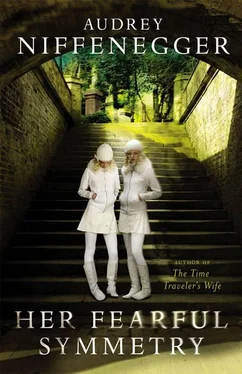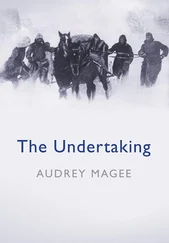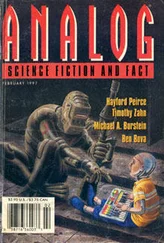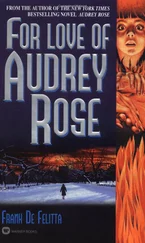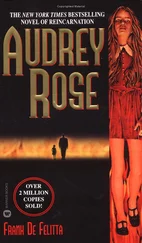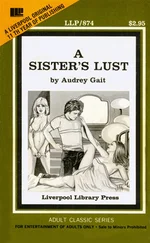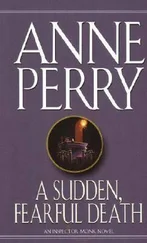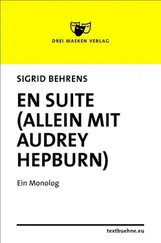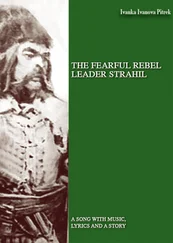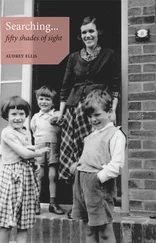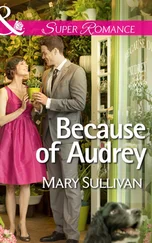“This is my papa,” said the girl.
“Quite welcome, I’m sure,” said the man to Valentina. “Would you care to join us?”
Valentina hesitated; heights made her nervous. But why not? she thought. I’m dead. Nothing can hurt me now. I can do whatever I want. “Yes,” she said. “I’d like that.”
“Splendid,” said the man. He raised his arm and an enormous crow flew down and plopped in front of them, cawing and strutting. Valentina thought, It’s just like hailing a taxi. Soon there were hundreds of crows milling about. Each ghost seemed to shrink until it was a suitable size, then hopped aboard a crow. Valentina imitated them. She clasped one ethereal arm around her crow’s neck and held onto the Kitten with the other, hugging the crow’s body with her knees.
Now the vast throng of crows rose out of Highgate Cemetery in unison, and the ghosts with them, their dark dresses and winding sheets flapping wing-like in the sky. They flew over Waterlow Park, circled around to fly across the Heath, and on and on, until they came to the Thames and began to follow the river eastwards, past the Houses of Parliament and Westminster Bridge, past the Embankment, London Bridge, the Tower, and on, and on. Valentina held tightly to her crow. The Kitten purred in her ear. I’m so happy, she thought with surprise. The sun passed through the ghosts un-dimmed, and the shadows of the crows darkened the river.
After Valentina had vanished from her sight, Julia stood in the open doorway for a little while, listening to the birds. Then she shut the green door. She went back to her flat and made herself another cup of coffee. She sat in the window seat and watched trees swaying in the cemetery, with flashes of white gravestones peeking through the leaves. She listened to the quiet of the house, the hum of the refrigerator, the flick of the numbers on the old clock radio turning over. I am definitely going to get a dog, Julia thought. She spent the afternoon dusting and talked to Theo on the phone after dinner. Julia went to bed contented and alone, and slept without dreaming.
It had been one of those vivid days: the fields around the cottage were radiantly green, and the Sussex sky was so blue it hurt her eyes. Elspeth had gone for a walk with the baby in the early evening. He was a colicky baby, and the walking sometimes soothed him when nothing else could. Now he was breathing quietly, asleep in his little pouch pressed against her breast. Elspeth came to the long drive that led to their tiny home. It was dark now, but the moon was nearly full and she could see her shadow moving before her up the drive. The summer insect songs pressed at her from all sides, a shimmering choir that lay like a blanket of sound over the fields.
For weeks she had been watching Robert carefully. There had been a long bad patch after they’d moved here. Robert could not adjust to the spaciousness, the quiet; he missed the cemetery and would take the train into London on the least pretext to visit it. He seldom spoke to Elspeth; it was as though he had withdrawn into his own invisible London and was living in it without her. His manuscript sat vast and untouched on his desk. Then the baby was born, and Elspeth had found herself in a purely physical world: sleep was an elusive prize, breastfeeding more complicated than she remembered. The baby cried; she cried, but at last Robert seemed to wake up and notice her. He seemed almost surprised by the baby, as though he’d thought she was joking about being pregnant. And to Elspeth’s surprise, the arrival of the baby did what she could not: it brought Robert back to writing his thesis.
For months now he’d worked with perfect concentration in the midst of baby-wrought chaos. She tiptoed around him, afraid to break the charm, but he told her there was no need. He said he found the din oddly helpful. “It’s as though it wants to be finished,” he said, and the printer whirred each night, emitting increasingly pristine pages.
Tonight she felt a pause, suspense: the world was adjusting itself into a new pattern. Something was going to happen; the manuscript was almost finished. Elspeth walked with the baby in the dark between sweet-smelling fields and rejoiced. I’m here. I’m alive. She placed her hands on the baby, felt his soft head against her cool palms. The ever-present regret lapped at her, and she thought of Valentina broken on the bedroom floor. Elspeth had no answer and no defence against this image. It flared in her mind vividly, then faded. She kept walking.
The cottage reminded her of a jack-o’-lantern, its windows blazing orange. All the lights were on. Elspeth walked through the garden and came in the back door, into the kitchen. The insect sounds diminished. The house was very still.
“Robert?” she called, careful to keep her voice low. She went into the front room. No one there. On Robert’s desk was a neat pile of paper. A History of Highgate Cemetery. All the files and notes had been cleared away. There was a look of finality about the scene. Elspeth smiled. “Robert?”
He was not in the house. He did not come back that night. Days went by, and at last she understood that he would not return at all.
I COULD NOT have written Her Fearful Symmetry without the extraordinary generosity of Jean Pateman, Chairman of the Friends of Highgate Cemetery. In addition to teaching me about the Cemetery and allowing me to become a guide there, she has been a great friend and an inspiration.
I am very grateful to the staff of Highgate Cemetery: Hilary Deeble-Rogers, Richard Quirk, Simon Moore-Martin, Pawel Ksyta, Aneta Gomulnicka, Victor Herman and Neil Luxton, for help with funeral customs and practices and for answering my many questions with great humour and patience.
I am especially indebted to Dr. Tony Jelliffe and to John Pateman, whose research and scholarship have been particularly relevant to this project.
Many thanks to Christina Nolan, Susan Norton, Alan Peters, Eddie Daley, Tracy Chevalier, Stuart Thorburn, Ian Kelly, Mary Openshaw, Justin Bickersteth, Greg and Becky Howard, Jean Ettinger, Judy Roberts, Rowan Davies, Ken Carter, Bob Trimmer, Christian Gilson, Steve Hanafin, Matthew Pridham, Samantha Perrin, Alex Mahler, Judith Yuille and all the Guides and Friends of Highgate Cemetery, past and present, who kindly let me tag along on their tours and badger them while they did the accounts. It has been a privilege to work with them.
Love and thanks to Joseph Regal, for his derring-do, fortitude and unconventional thinking, as well as his immensely helpful editing. Thanks to Lauren Schott Pearson, Markus Hoffmann and Howard Sanders for their excellent advice and guidance in literature and life. Thank you to Barbara Marshall and Michael Strong. And thanks, Caspian Dennis of Abner Stein, for friendship and excellent agenting.
Thank you to Dan Franklin for wise editing and sideways thinking, and for correcting my Americanisms (French windows; who knew?). Love and thanks to Rachel Cugnoni, Suzanne Dean, Chloë Johnson-Hill, Alex Bowler, Liz Foley, Roger Bratchell and Jason Arthur of Random House UK; thank you to Marion Garner and Louise Dennys of Random House Canada. And Dank und Liebe to Hans Jürgen Balmes, Isabel Kupski and Brigitte Jakobeit of S. Fischer Verlag.
Thank you to Nan Graham, for her incisive editing and lightness of touch; I look forward with pleasure to our future collaborations. Thank you, Susan Moldow, Paul Whitlatch, Rex Bonomelli and Katie Monaghan of Scribner.
I am grateful to the Ragdale Foundation and the Corporation of Yaddo for residencies that gave me time and space to work, and to the British Library for research assistance. Thanks also to the High-gate Scientific and Literary Institution for a productive afternoon in their library.
Читать дальше
